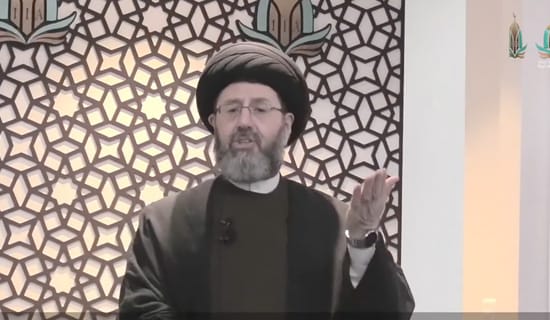
Saudi author Said Al-Suraihi, interviewed by the Al-Arabiya network, said that the crisis in the Arab world stemmed from the perseverance of tribal perceptions of the ruler as the sheikh or the surrogate of God, who cannot be taken to task. He accused the Arab regimes of keeping the sectarian problem "like a maid who sweeps the dirt under the rug" and of "exploiting the problem to gain a tighter grip on the people." The interview aired on October 1.
Said Al-Suraihi: "No reasonable person could absolve the Arab regimes of what has become of our Arab world, but we should try to understand that the crisis is not confined to this or that regime. The Arab regimes are the product of our historical perception of the relation between the ruler and the subject. The Arab regimes have relied upon a long history of viewing the ruler as the surrogate of God - and one cannot hold the surrogate of God accountable for his doings. The Arab regimes were born of a conception that views the ruler as the sheikh of the tribe, and in tribal norms, the tribe is not allowed to question the sheikh's decisions. The Arab regimes were born of a conception that views the ruler as the father of the family, and it is inappropriate for a family to question the father's decisions. Therefore, to achieve historic change, we must change the way we view the ruler.
[...]
"The people who wrote our history have committed a crime against us, by ignoring - either accidentally or deliberately - or by neglecting to recount how Islam spread to the East by exemplary means. Furthermore, how did the biography of Allah's Messenger, a human being, transform into a biography of invasions? How did the life of the Messenger become connected to the Raid of Badr, the Raid of Uhud, the Raid of Hunayn, the Raid of the Trench, and so on? In the books of the sira, we do not see the Prophet as a model human being. We see this in other books. The sira has turned into a list of battles. Our history has become associated with battles. Hence, when the extremist groups emerged - Al-Qaeda, ISIS, Al-Nusra, and so on - they evoked the violent aspect of our history. They did not find any trace of the spread of Islam in humane ways.
[...]
"The [Arab] regimes have ruled us for decades, without rectifying [the sectarian] problem in its educational and media systems. They have kept it like a maid who sweeps the dirt under the rug. These Arab regimes, these Arab states, are guilty of exploiting the [sectarian] problem in order to gain a tighter grip on the people, and of not dealing with this problem for decades. They have failed to turn its people into a nation, rather than a mosaic of tribes and sects, for which a single spark suffices to set them one against the other."













